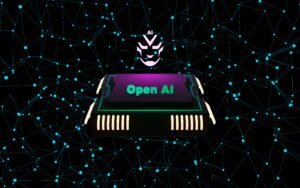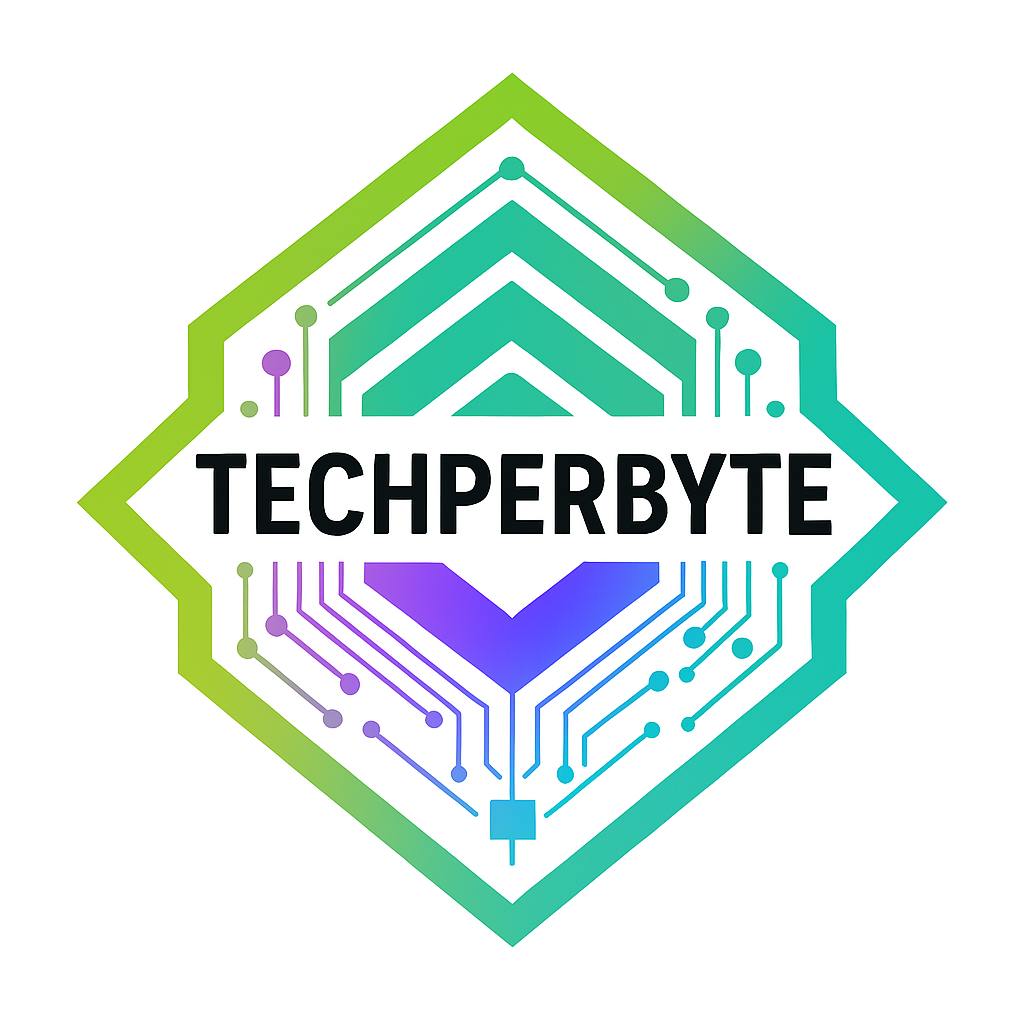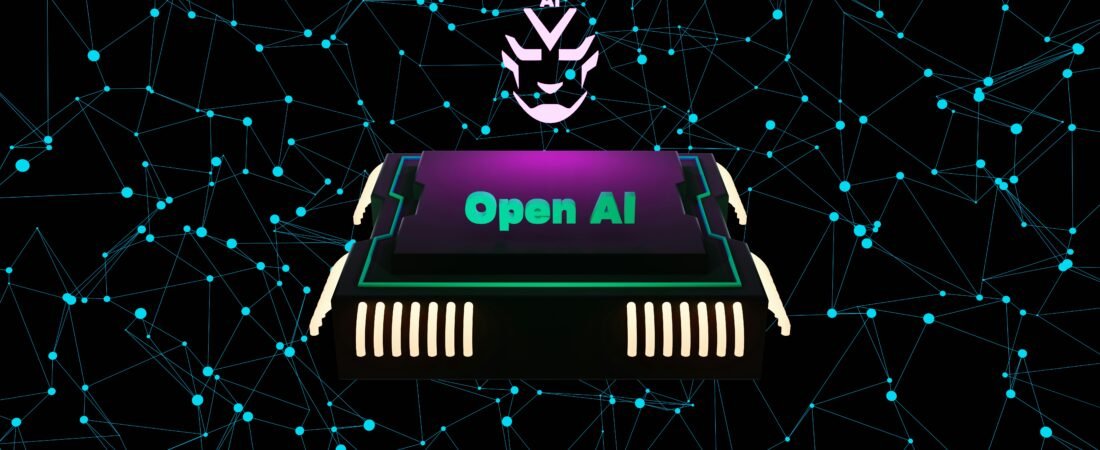Introduction to Our Mission
As we step into the dynamic landscape of 2025, our goal is to delve into the profound implications of modern technology and artificial intelligence (AI) across diverse sectors and everyday life. The integration of these advanced technologies is transforming how we work, communicate, and interact with the world around us. Our mission is to provide clear, insightful content that not only highlights these changes but also empowers our readers to navigate and embrace the opportunities that arise from them.
We recognize that the rapid evolution of technology can be overwhelming. With innovations emerging at an unprecedented pace, understanding the nuances of modern tech and AI becomes critical. Our commitment is to demystify these subjects, breaking down complex concepts into actionable knowledge that readers can use. By exploring various industries, from healthcare to finance to education, we aim to illustrate the multifaceted ways these technologies influence and enhance our lives.
Moreover, we will examine the ethical considerations and societal impacts that accompany the rise of AI, ensuring that we approach these topics with a critical lens. Discussing both the benefits and challenges allows us to provide a well-rounded perspective. Our focus is not only on highlighting the technologies themselves but also on fostering a dialogue about their implications for the future. We aspire to create an informed community that values continuous learning and adaptation in an ever-evolving tech landscape.
Through this blog, we invite our readers to engage with us as we explore these critical advancements. Our mission is to equip you with the knowledge and tools necessary to leverage modern technology and AI effectively, ultimately making informed decisions in a world increasingly shaped by these innovations.

The Relevance of Modern Tech and AI
In recent years, the significance of modern technology and artificial intelligence (AI) has escalated dramatically, influencing various sectors in profound ways. One of the most notable impacts can be observed in healthcare, where AI-driven solutions are revolutionizing patient care. For instance, predictive analytics tools utilize vast amounts of medical data to anticipate patient outcomes, allowing healthcare providers to deliver more effective interventions tailored to individual needs. Furthermore, innovative diagnostic systems employing AI can identify diseases at an early stage, thus enhancing treatment efficiency and potentially saving lives.
Similarly, the finance sector has experienced a remarkable transformation through the incorporation of AI technologies. Automated trading systems and algorithms analyze market trends and execute trades at speeds beyond human capability, optimizing investment strategies. For example, robo-advisors leverage AI to assess clients’ financial goals and risk tolerances, providing personalized investment plans that are both scalable and efficient. This has democratized access to financial services, broadening the reach of investment opportunities to a wider audience.
In the field of education, modern technology and AI are fostering personalized learning experiences that cater to diverse student needs. Adaptive learning platforms utilize AI to assess student performance in real-time and adjust educational content accordingly, enhancing engagement and improving learning outcomes. An illustrative example can be seen in intelligent tutoring systems that provide one-on-one assistance, reinforcing concepts in a manner tailored specifically for each learner. These applications not only foster academic achievement but also empower educators by streamlining instructional strategies.
As industries continue to evolve, the relevance of modern technology and AI remains paramount. By streamlining processes, enhancing decision-making, and improving overall user experiences, these advancements are laying the foundation for a more efficient and innovative future across various sectors.
Transforming Industries: Case Studies
In recent years, the integration of modern technology and artificial intelligence (AI) has fundamentally transformed various industries, enhancing efficiency, productivity, and customer satisfaction. This section examines notable case studies that reflect these pivotal changes across different sectors.
One exemplary case is the healthcare industry, where AI-driven analytics tools have revolutionized patient care. Prior to the implementation of these technologies, healthcare systems often struggled with inefficient patient data management and prolonged diagnosis times. Hospitals that adopted AI-enabled diagnostics reported a substantial reduction in misdiagnoses and improved patient outcomes. By leveraging machine learning algorithms, healthcare practitioners can analyze extensive datasets more rapidly and accurately, leading to timely interventions and enhanced patient wellbeing.
Another prominent example is the manufacturing sector. Traditional manufacturing processes were often characterized by manual labor and high rates of waste due to inefficiencies. The introduction of IoT devices and AI for predictive maintenance has transformed these operations. Companies that embraced these technologies witnessed a notable decrease in machinery downtime and maintenance costs. Predictive analytics allows manufacturers to anticipate equipment failures before they occur, thereby facilitating seamless production processes and optimizing the use of resources.
In the retail industry, AI has altered the customer experience significantly. Retailers faced challenges such as inventory mismanagement and lack of personalized shopping experiences. The adoption of AI-driven recommendation systems has enabled retailers to offer tailored product suggestions, resulting in increased customer engagement and sales. The integration of AI in supply chain management also allows businesses to forecast demand more accurately, reducing overstock and stockouts, which optimizes profitability.
These case studies illustrate the transformative effects of modern technology and AI across industries, revealing how businesses are overcoming challenges and reaping lasting benefits. As technology continues to evolve, its impact on various sectors remains crucial and relevant.
The Everyday Impact of Technology and AI
In recent years, the integration of technology and artificial intelligence (AI) into daily life has transformed various aspects of household management, personal finance, and overall productivity. One of the most notable examples of this phenomenon is the rise of smart home devices, which utilize AI algorithms to enhance functionality and user experience. These gadgets, ranging from smart thermostats to intelligent security systems, enable users to automate and control their home environments with ease. For instance, smart speakers equipped with virtual assistants like Amazon’s Alexa or Google Assistant can manage tasks such as setting reminders, controlling lighting, and even providing updates on weather and traffic conditions.
Moreover, AI is also reshaping how individuals manage their finances. Many people now rely on digital budgeting tools and apps that leverage AI to analyze spending patterns, suggest savings strategies, and even automate bill payments. Such applications often employ machine learning to provide customized financial advice tailored to users’ behaviors and goals. This enables individuals to attain greater control over their finances and make informed decisions. AI-driven investment platforms, such as robo-advisors, are further altering the financial landscape by delivering algorithm-based portfolio management that reduces the necessity for human financial advisors.
The everyday impact of technology and AI is also evident in personal productivity. Numerous applications utilize AI for task management, email filtering, and scheduling. For example, tools like Microsoft Outlook’s Focused Inbox or Google’s Smart Compose feature improve communication efficiency by helping users prioritize important messages. As technology continues to evolve, it becomes increasingly apparent that embracing these advancements can lead to enhanced convenience and efficiency in everyday tasks. The seamless integration of AI into daily life is not merely a trend but a reflection of a fundamental shift toward a more interconnected and intelligent future.
Expectations for Our Content: Tools & Tutorials
As we look toward the advancements in technology and artificial intelligence (AI) in 2025, our blog aims to serve as a comprehensive resource for readers interested in navigating this evolving landscape. We will introduce a variety of tools and tutorials designed to empower users with the knowledge necessary to utilize these innovations effectively. Our focus will be on providing practical, step-by-step instructions that demystify complex technologies, making them accessible to all, regardless of prior experience.
Additionally, we will include resources for emerging software that enhances productivity and creativity, from content generation to data analysis tools. Each tutorial will incorporate examples and case studies, demonstrating how these technologies can be leveraged in real-world scenarios. This practical approach aims to bridge the gap between theoretical knowledge and practical application, enabling readers to confidently implement new tools in their own projects.
Furthermore, we will explore various platforms that support AI-driven decision-making, offering insights on how to integrate these effectively into business strategies. By utilizing these resources, our blog readers will be well-prepared to harness the potential of modern technology and AI, transforming their workflows and fostering innovation. As we continue to evolve alongside these advancements, we are committed to delivering timely and relevant content that aids our audience in understanding and utilizing the tools available in 2025 and beyond.
Emerging Trends in Tech and AI
As we progress toward 2025, the landscape of technology and artificial intelligence (AI) is evolving at an unprecedented pace. One of the most significant trends is the integration of AI into everyday applications, which is transforming various sectors, including healthcare, finance, and transportation. Machine learning algorithms are becoming increasingly sophisticated, enabling systems to analyze vast amounts of data quickly, delivering insights that were previously unattainable. This capability accelerates decision-making processes, enhances efficiency, and fosters innovation.
Another notable trend is the rise of autonomous systems. From self-driving cars to drones, automation is poised to revolutionize industries by optimizing logistics and reducing human error. Companies are investing heavily in research and development to enhance the capabilities of these technologies, thereby improving safety and operational efficiency. For instance, in the agriculture sector, AI-driven machines are revolutionizing how crops are monitored and harvested, potentially increasing yields while minimizing environmental impact.
Moreover, the focus on ethical AI is becoming paramount as organizations recognize the importance of developing algorithms that are fair and transparent. This shift toward responsible AI development aims to address issues related to bias and privacy, ensuring that the benefits of technology are accessible and equitable for all individuals.
In conclusion, the emerging trends in technology and AI are poised to reshape how we live and work by fostering innovation and improving everyday experiences. As we approach 2025, staying informed about these changes will be crucial for individuals and industries alike.
Product Reviews and Recommendations
In the rapidly evolving landscape of technology and artificial intelligence, product reviews play a crucial role in guiding consumer choices. Our approach to product reviews emphasizes transparency and impartiality, ensuring that our insights reflect the true capabilities and limitations of each product. We strive to provide thorough and detailed analyses of the latest tech innovations and AI advancements, helping readers make informed decisions based on their needs and preferences.
To maintain a high standard of quality, our review process involves several key stages. Initially, we conduct extensive research into each product, gathering data from reputable sources, technical specifications, and user testimonials. This foundational research enables us to form an objective understanding of what each product offers. Following this, we engage in hands-on testing, evaluating the performance, usability, and overall experience that the product provides. This dual approach of both research and real-world application allows us to present a balanced view of each item.
As we share our findings, we encourage readers to consider their specific use cases. Each individual’s requirements differ significantly, and our goal is to navigate through the vast array of options available. By offering unbiased product reviews and recommendations, we aim to equip our audience with the knowledge needed to select the most suitable tech and AI products for their personal or professional needs.
Community Engagement and Reader Interaction
As we continue to navigate the rapidly evolving landscape of technology and artificial intelligence, the importance of community engagement cannot be overstated. Engaging with readers fosters a sense of belonging and collective learning, which is crucial for comprehending complex topics. When individuals gather around shared interests, particularly in areas like modern tech and AI, the discussions that arise can illuminate diverse perspectives and spark innovative ideas. Encouraging reader interaction not only enhances the overall experience but also enriches the content we provide.
To cultivate a thriving community, we invite readers to actively participate by sharing their thoughts, experiences, and inquiries. By creating an open forum for discussions, we can facilitate meaningful conversations regarding the implications of current advancements in technology and AI. This interaction encourages a richer discourse and allows contributors to voice their concerns or support for various technological developments. In doing so, we shift from a simplistic commentary on tech trends to a more holistic exchange of knowledge and opinions.
Moreover, by voicing your questions and sharing your unique insights, you become an integral part of the ongoing dialogue surrounding modern technology. Each voice adds value to the conversation, whether it pertains to ethical concerns related to AI or the potential benefits of emerging technologies. Engaging with fellow readers can also provide reassurance that we are not navigating this complex technological shift alone; rather, we stand together, poised to understand and adapt to its nuances. Ultimately, your participation is vital for building a dynamic community that enhances our collective understanding of modern tech and AI topics.
Looking Ahead: The Future of Tech and AI
The landscape of technology and artificial intelligence is continuously evolving, and as we look beyond 2025, it is evident that we are on the brink of significant advancements. These innovations will not just transform industries but also reshape how we interact with the world around us. By examining current trajectories, we can glean insights into what the future holds for tech and AI.
Moreover, advancements in AI will significantly impact industries such as healthcare, finance, and education. Machine learning algorithms have the potential to analyze vast datasets, facilitating better decision-making processes and personalized experiences. In healthcare, this means optimized treatment plans tailored for individual patients, thanks to predictive analytics. In finance, AI can provide insights into market trends, helping investors make informed decisions. Similarly, educational platforms may leverage AI for personalized learning experiences, catering to the specific needs and abilities of each student.
As we approach 2025 and beyond, the intersection of technology and AI promises a future filled with possibilities. Future posts will delve deeper into specific innovations and their societal implications, exploring how these advancements can create a more connected and efficient world.

